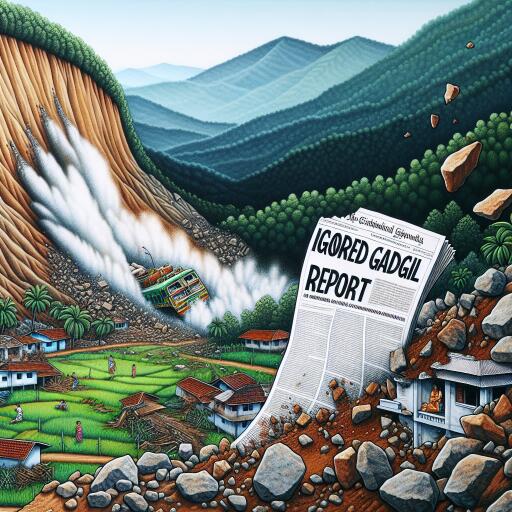
Wayanad: A Wake-Up Call as Kerala Faces the Consequences of Ignoring Environmental Recommendations
In 2011, the Western Ghats Ecology Expert Panel, led by the renowned environmentalist Madhav Gadgil, submitted a pivotal report that aimed to provide a blueprint for the sustainable management of the Western Ghats. Recognized as a UNESCO World Heritage Site and a global biodiversity hotspot, the Western Ghats are crucial for their ecological services, including climate regulation and hydrological support for the entire region. Despite the urgent calls for conservation outlined in the Gadgil report, policy decisions have often favored immediate economic benefits over long-term ecological stability, leading to devastating outcomes for regions like Wayanad.
The Gadgil report underscored the fragility of the Western Ghats’ ecosystem, stressing the need for the preservation of its rich biodiversity and the rehabilitation of communities living in ecologically sensitive areas. It specifically advised against engineering projects that could harm the area’s ecological balance, such as excessive quarrying, large-scale construction, and monoculture plantations. These activities not only reduce the land’s natural resilience but also escalate vulnerability to natural disasters like landslides, further compounded by the adverse effects of climate change.
Recent events in Wayanad underscore the dire consequences of disregarding these environmental warnings. The region, known for its verdant landscapes and as a popular tourist destination, experienced severe landslides, attributed to unchecked infrastructure development, deforestation, and unsuitable land-use practices. This disaster is a grave reminder of the importance of adhering to sustainable development principles to safeguard against such tragedies.
The Kerala State Disaster Management Authority’s data revealing over 400 landslides between 2018 and 2020 alone highlights a significant oversight in implementing precautionary and preparedness measures. Despite the clear demarcation of landslide-prone zones, the absence of effective early warning systems and emergency response strategies has led to unnecessary loss and damage.
To avert future calamities, it is imperative to revisit and reinforce the Gadgil report’s recommendations. The demarcation of ecologically sensitive areas (ESA) and stringent regulation of development activities within these zones are critical steps. The report’s initial identification of 123 villages as ESAs underscores the necessity of limiting environmental degradation through controlled mining, quarrying, and construction, while promoting sustainable agricultural practices.
Moreover, Kerala’s experience with extreme weather conditions, exacerbated by climate change, serves as a clarion call for integrating climate resilience into development planning. The implementation of green infrastructure, investment in early warning technologies, and emphasis on community-based resource management are vital measures that need to be adopted.
Economic imperatives driving unsustainable exploitation of resources, particularly in sectors like agriculture and tourism, highlight the urgent need for a paradigm shift. Balancing economic growth with ecological preservation is essential for the well-being of both the current and future generations. Wayanad’s predicament should act as a catalyst for policy reform, encouraging the adoption of practices that ensure the economic vitality does not come at an environmental cost.
This disaster also emphasizes the role of legal and regulatory frameworks in enforcing environmental norms. Bodies like the National Green Tribunal (NGT) should ensure compliance with environmental laws, adapting legal frameworks to incorporate the latest scientific insights and environmental considerations.
In conclusion, the tragic events in Wayanad are a somber reminder of the cost of ignoring expert advice on environmental conservation and sustainable development. It is a wake-up call for Kerala and similar regions to adopt a proactive approach to disaster management, emphasizing ecological balance and community safety over short-term gains. Strengthening the implementation of the Gadgil report, enhancing disaster preparedness, and fostering public awareness about environmental preservation are crucial steps toward mitigating future risks and ensuring the sustainable development of these ecologically fragile areas. By learning from the past and making concerted efforts to protect the environment, we can pave the way for a more resilient and sustainable future.
As rescue and rehabilitation efforts continue, the focus must also shift towards the long-term recovery of the affected communities, ensuring their resilience against future disasters. This tragic incident should serve as a catalyst for a comprehensive reassessment of development priorities, with a renewed commitment to sustainable living and ecological conservation as foundational principles for future growth.





Leave a Reply